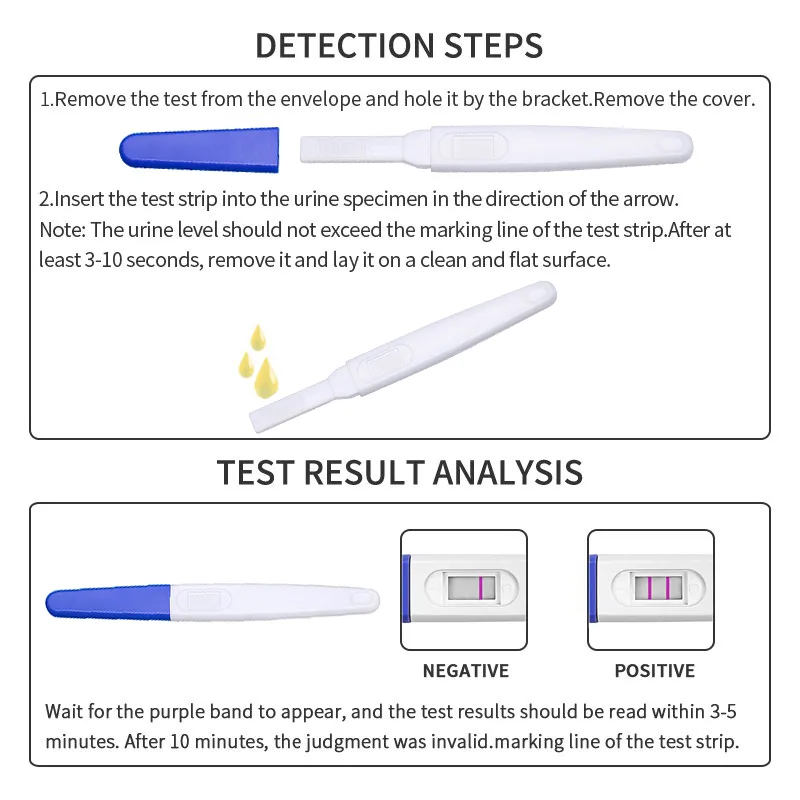ኅዳር . 05, 2024 09:04 Back to list
hiv test price
Understanding HIV Test Prices What You Need to Know
In recent years, awareness surrounding HIV and its testing has significantly increased. With the advent of various testing options, it is essential to understand how pricing works when it comes to HIV tests. The cost of an HIV test can vary based on numerous factors, including where the test is conducted, the type of test performed, and whether or not you have health insurance.
Types of HIV Tests
There are several types of HIV tests available, and their prices can differ widely. The most common types include
1. Antibody Tests These tests detect the presence of antibodies that the body produces in response to HIV infection. They can be done via blood or oral fluid samples.
2. Antigen/Antibody Tests This type tests for both HIV antibodies and antigens, the latter of which can be detected earlier than antibodies alone. These are typically more expensive than standard antibody tests.
3. Nucleic Acid Tests (NAT) This test looks for the virus itself in the blood and is generally used in specific circumstances, such as recent exposure to the virus. NATs are considered the most expensive option.
Cost Factors
The pricing of HIV tests can be influenced by several factors
- Location Prices can vary significantly by geographic location. Urban areas might have higher costs due to increased demand and living expenses while rural areas may offer more affordable options.
- Testing Facilities Public health clinics, private labs, and hospitals may price their tests differently. Public health facilities often provide free or low-cost testing, funded by government grants or health organizations.
- Insurance Coverage If you have health insurance, your plan may cover the costs of an HIV test, in which case you might only be responsible for a copayment. It is essential to check with your insurance provider to understand your specific coverage.
hiv test price

- Type of Test As mentioned, different types of tests have varying costs, with NAT being the most expensive. Simpler antibody tests are typically more affordable.
Average Prices
On average, an HIV test can range from free to several hundred dollars. For instance, free testing is often available at community health clinics, which is a great option for those without insurance. Rapid tests done at clinics or via home testing kits might cost between $20 and $50. In contrast, laboratory tests ordered by a healthcare provider might range from $100 to $200 or more, especially if they include additional tests.
Importance of Testing
Understanding the price of HIV tests is essential, but it is equally important to recognize the value of getting tested. Regular HIV testing is a crucial part of maintaining sexual health, and knowing one’s HIV status can lead to better health outcomes. Early detection can seriously improve treatment options and quality of life for those who are HIV-positive.
Exploring Free and Low-Cost Testing Options
For those concerned about the cost of HIV testing, several resources are available
- Community Health Centers Many offer free or sliding-scale services based on income. These centers often provide comprehensive sexual health services, including counseling and follow-up care.
- Nonprofit Organizations Organizations like the American Red Cross and the local health departments often host free testing events or provide resources to find affordable testing options.
- At-home Testing Kits In recent years, at-home testing kits have become more popular. While they can cost upwards of $40, they offer privacy and convenience for individuals who may be hesitant to visit a clinic.
Conclusion
The price of an HIV test should not deter individuals from seeking this critical healthcare service. With various options available, including free testing, it’s essential to prioritize regular testing as part of overall health maintenance. Understanding the financial aspects alongside the importance of testing can empower individuals to take control of their health and well-being. Whether through a public health clinic or at-home testing, knowing your HIV status is a vital step toward a healthier future.
-
Premium Empty ABS Plastic Cassettes: Durable & Lightweight Storage
NewsAug.01,2025
-
Accurate Cocaine (Coc) Rapid Test Kit | Fast & Reliable Detection
NewsJul.31,2025
-
Accurate HCG Pregnancy Test Strips | Fast Home Use Kit
NewsJul.31,2025
-
Reliable Early Pregnancy Test Kit Supplier - Multi Plastic Cassette Options
NewsJul.30,2025
-
Transferrin Rapid Test Cassette – Reliable Tumor Marker Detection
NewsJul.29,2025
-
Accurate Follicle Stimulating Hormone Test Kit | Rapid Reliable Results
NewsJul.29,2025

